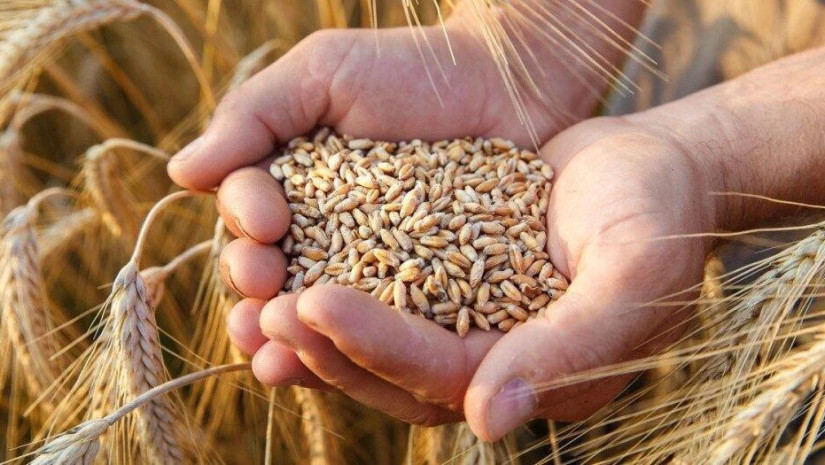Wheat prices jumped after Russia attacked the seaport of Odessa with cruise missiles at the weekend, just hours after signing a deal to unblock grain exports from Ukraine, a move that was hailed as a vital step toward alleviating the global food crisis.
Futures in Chicago surged as much as 4.6 per cent, before paring gains to trade 3.1 per cent higher by late afternoon in Singapore. Prices slumped almost 6 per cent on Friday to close at the lowest since early February after the agreement was reached to allow shipments from three Black Sea ports including Odessa.
Millions of tonnes of grain are stuck in Ukraine after Russia’s invasion blocked its major ports. While a small volume has been rerouted by road and rail, major customers in the Middle East and North Africa have been forced to look elsewhere for supplies, pushing up prices and worsening food insecurity.
The Russian missile attack is “poor form considering the importance of this agreement, and reiterates the fears that an agreement with Russia isn’t worth the paper that it is written on”, according to Andrew Whitelaw, a grains analyst at Melbourne-based Thomas Elder Markets.
There were nine ships at Odessa sea port, including four loaded with corn worth $US45.6 million ($66 million), a person familiar with the matter told Bloomberg News. The grain ships were under the flags of Malta, Liberia, Sierra Leone and Panama, said the person, who asked not to be identified discussing private information.
The parties to the agreement committed not to undertake attacks against merchant vessels or port infrastructure engaged in the initiative, according to a copy of the document signed by Ukraine posted on Facebook by Andriy Sybiha, deputy chief of staff to Ukrainian President Volodymyr Zelensky.
Natalia Humeniuk, a spokeswoman for the Ukrainian military’s southern command, said on TV the missiles did not hit grain storage at the port.
‘Military infrastructure’
Moscow broke its silence on Sunday (Monday AEST), when Maria Zakharova, spokeswoman for the Russian Foreign Ministry, said on Telegram that Kalibr cruise missiles had destroyed a Ukrainian “military infrastructure facility” in Odessa.
Corn futures rose as much as 2.8 per cent on Monday before paring gains to 1.4 per cent, while soybeans were up just 0.3 per cent.
Ukraine, meanwhile, forged ahead with efforts to restart grain exports from its Black Sea ports under a deal aimed at easing global food shortages, but warned deliveries would suffer if a Russian missile strike on Odessa was a sign of more to come.
President Zelensky denounced the weekend attack as “barbarism” showing Moscow could not be trusted to implement a deal struck a day earlier with Turkish and United Nations mediation.
The deal signed by Moscow and Kyiv on Friday was hailed as a diplomatic breakthrough that would help curb soaring global food prices by restoring Ukrainian grain shipments to pre-war levels of 5 million tonnes a month.
Under the agreement, Ukrainian captains will steer vessels carrying grain out of port, and a joint command centre with officials from Ukraine, Russia, Turkey and the United Nations will be set up in Istanbul to monitor the flotillas’ movements.
The ships will head into Turkish waters to be inspected by officials, then deliver their cargo around the world, returning for another inspection before heading back to Ukraine to satisfy a Russian demand that returning ships not carry weapons to Ukraine.
But Mr Zelensky’s economic adviser, Oleh Ustenko, told Ukrainian television the strike “indicates that it will definitely not work like that”.
He said Ukraine could export 60 million tonnes of grain over the next nine months, but it would take up to 24 months if its ports’ operations were disrupted, Financial Review reports.
















